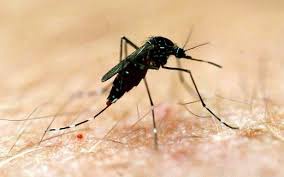Malaria related health expenditures and lost productivity cost Africa’s economy an estimated US$12billion every year, a study has concluded.
The report further revealed the economic cost of malaria on Ghanaian businesses alone in 2014 was US$6,588,729. Between 2012 and 2014, sixty-two (62) businesses surveyed in Ghana lost equivalent to 3,913 workdays to malaria, it added.
The study was conducted by the Private Sector Malaria Prevention (PSMP), UK DFID-funded project implemented by Johns Hopkins Centre for Communication programmes. It indicated that malaria negatively impacts significantly on foreign direct investment, tourism, labour productivity, and commerce, stressing that "malaria imposes an enormous economic burden on families, communities and all African countries."
Mr. Tetteh Ogum, Business Technical Advisor, PSMP disclosed this during a presentation at the 2nd quarterly meeting of the Ashanti and Brong Ahafo branch of the Association of Ghana Industries (AGI) held in Sunyani last week Thursday. He said malaria related complications are taking huge tolls on workers output and therefore imperative for employers to show interest to protectworkers and their dependents from contracting it.
He said PSMP supports the private sector in protecting workers and their dependents from malaria with focus on the distribution on Insecticide Treated Nets (ITNs) and urged businesses to take advantage of the initiative to protect productivity.
"PSMP complements your efforts with technical assistance, promotional support and subsidies on LLINs, should you decide to implement a net distribution programme for employees and their dependents. When private companies invest in malaria prevention for their workers and communities, they see marked decreases in malaria cases, lost work days and subsequent increases in profit or benefits to the local economy," he explained.
Mr. Ogum cited AngloGold Ashanti as a case study in the correlation between malaria prevention and productivity. He said the company used to have a high burden of malaria among employees. In 2005, a total of 6,983 workers-hours were lost to malaria infections and staff missed 7,400 shifts every month as company hospital spent US$55,000 on malaria treatment each month.
The company, he noted, embraced distribution of ITNs to vulnerable groups, IRS, screening houses, larviciding, cleaning dumps and public health education as the interventions. These resulted in cases of malaria per 1,000 employees fallen from 238 per month to 61 per month in two years. Worker-hours lost to malaria infections also dropped drastically from 6,983 per month to 149 per month in less than three years.
Business News of Tuesday, 18 July 2017
Source: thebftonline.com
Malaria costs African economy US$12bn annually
 The report revealed the economic cost of malaria on Ghanaian businesses in 2014 was US$6,588,729
The report revealed the economic cost of malaria on Ghanaian businesses in 2014 was US$6,588,729
















